Health
From Working as a Houseboy to Being the Best in School: Ssembuusi’s Story of Overcoming Hardships & Achieving Success
Published
2 years agoon
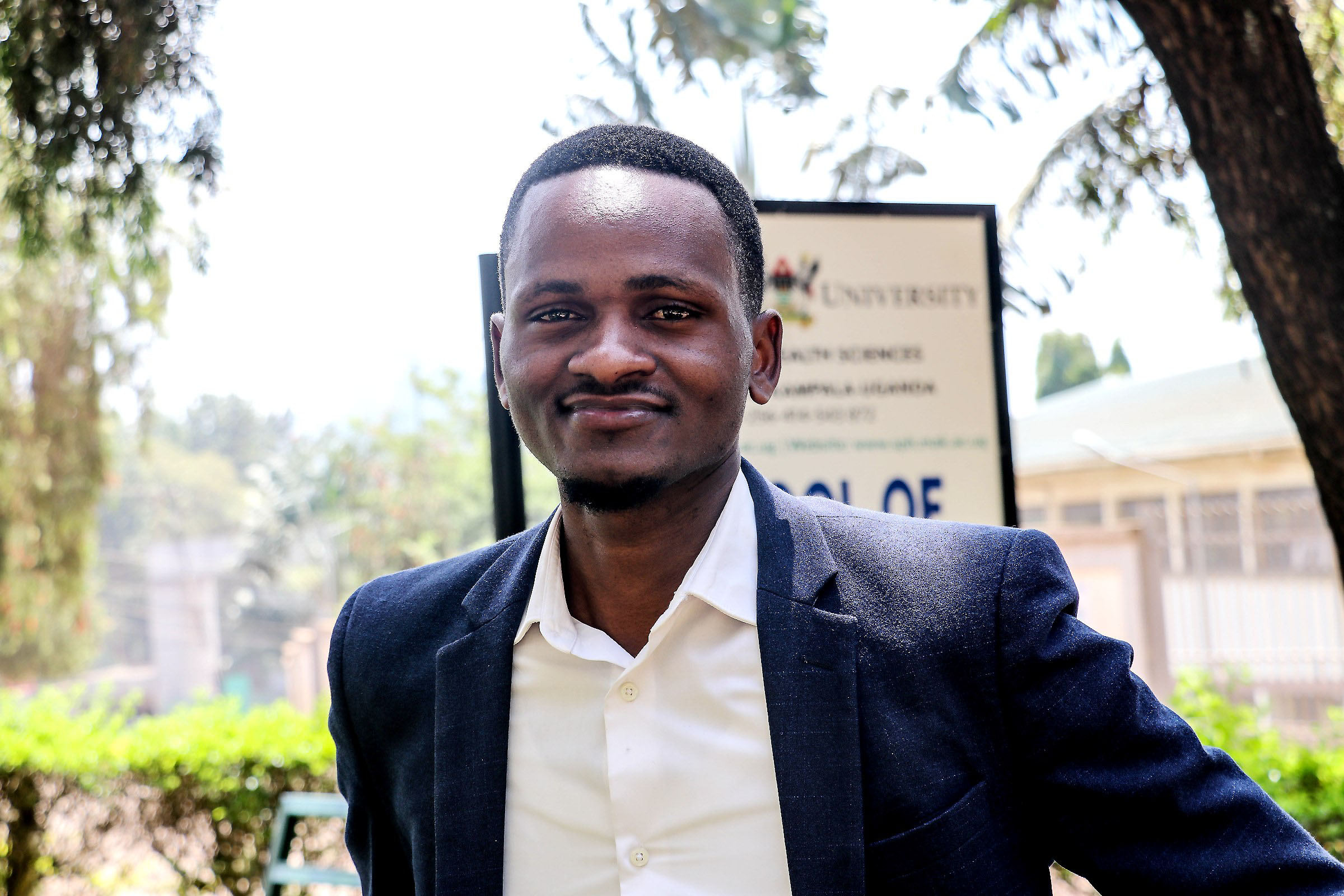
Against all odds, Allan Ssembuusi-Mayengo rose from a house boy to a First-Class student. In this episode of Makerere University’s week-long 73rd graduation ceremony slated to run from February 13-17, 2023 we present to you a story of a determined young man who never let his circumstances define him, and how he achieved the impossible through hard work, perseverance and the power of prayer. He will graduating as a second best in his class at Makerere School of Public Health (MakSPH) with a Cumulative Grade Point Average (CGPA) of 4.42.
With determination and a willingness to take on any job that came his way, Ssembuusi struggled through financial hardship to make a better life for himself. From selling water at the new taxi park to working as a phone repairman and even starting a mobile manicure and pedicure business, he used his entrepreneurial spirit to support himself through University, despite the challenges he faced he carved out a path to success, proving that with grit and perseverance, anything is possible.
Born on 15th February 1996 in Kyabiiri, Kibinge Subcounty, Bukomansimbi District in Greater Masaka to Wilson Mayengo and the late Sarah Nantongo, Ssembuusi is the 4th born in his family.
School life
For the better part of his childhood, Ssembuusi stayed with his step-mother Ms. Margret Namuddu in Kawanda, Wakiso District after a separation between his mother and father. His mother later passed away while he was in Senior four (S.4). With obstacles in his path he hopped from school to school sometimes to dodge school financial requirements.
As early as 2004, he had started school at Bituntu Church of Uganda Primary School in Masaka. He only completed his Primary One class before he was transferred back to Nalujja primary school in Kawempe in Kampala, where he had a short stint of two academic terms.
In 2005, his family shifted to Kawanda, a small town located north-west of Kampala, the Uganda’s capital town. While here, he completed his Primary Two (P.2) at Little Angels Primary School, a private school. The comfort was short lived as he would later relocate to Nakyessanja Church of Uganda Primary School from P.3 until he sat his Primary Leaving Examination -PLE in 2010.
“This was so hard for me, we didn’t even have lunch at school. In the morning, our step-mom would prepare for us tea with acoil bun (Mwana akaaba) bread of Shs. 100, and this would take us all day until our next meal in the evening. My stepmom always had dinner ready whenever we returned from school. It was hard being at school, seeing your colleagues going to the canteen to buy eats during break and lunch time when you are in class “eating shadows” but still I managed to perform well. I started being in the first position in class in P.3 up to when I finished P.7. All these challenges gave me determination and courage to work hard so that I get a better future,” recollects Ssembuusi.
While in P.3, Ssembuusi was top of his class in promotional examinations but he could not access his report card because his parents had failed to pay UShs 2,000 (approximately $0.54).
“While appearing at end of term School assembly, I was announced as being in the first position—the School administration used to announce the 1st, 2nd and 3rd place holders. We didn’t have that money at home so I didn’t pick my report. With this in mind however, I just reported to P.4 at the start of the next year. The headmaster however, came reading out names of those who didn’t pick their reports, and we were all taken back to P.3,” he says.
He recalls crying endlessly by this act but would only console himself knowing the situation back at home and that his father genuinely did not have the money; “We used to eat cassava flour with avocado. We had an Avocado tree at home and we would temporarily forget hunger in seasons the tree would, bear fruits. We would pick avocado and mash it as the sauce.”
As luck would have it, Ms. Grace Nakidde, his teacher provided him the required Ushs.2,000 that granted him access to his report, and then became officially promoted to the next class in 2006.
Ssembuusi, was frequently engaged in various household tasks, which caught the attention of a neighbor. At the age of 12, while in Primary Five, he went to work for this neighbor as a houseboy to earn money for school fees.
“At the time, we were paying around Ushs 10,000 (approximately $2.72), for remedial classes and Ushs 5,000 for lunch. I used to work day and night, but I stayed focused because I wanted to study. I would go to School barefooted. At P.7, I got 9 aggregates and this was the only first grade at my school.”
Ssembuusi’s excellent performance earned him a bursary to attend Central College Kawempe, a school owned by a relative of his employer. Despite this financial aid, he still had to pay for some school materials, which prompted him to continue working at home. “I would wash cars for our neighbor every day to buy books, but I still excelled and was the best in all three terms of S.1,” he said. However, due to the mistreatment he experienced as a houseboy, Ssembuusi confided in his parents, who then spoke to his employer. Unfortunately, this led to the loss of his bursary.
“Since my parents were unable to pay for my education at Central College Kawempe, they transferred me to Luteete Senior Secondary School in Luweero. I am grateful to Mrs. Kiwanuka who, through our shared faith at Elim Pentecostal church in Kawanda, connected me to Luteete where I was able to obtain a half bursary. This required me to raise Ushs 150,000 (approximately $40.82) on my own. Despite this, things were still difficult for me, as I often only had Ushs 20,000 (approximately $5.44) to last me through the entire term.”
Ssembuusi states that the school’s provision of lunch and supper helped him stay focused. He adds, “Sometimes I sold my lunch to afford necessities like books and pens, but I still excelled and remained the best throughout my stay, up to S.4. I scored 13 out of 8 aggregates, the best performance in the school’s 60-year history. I achieved it through hard work and prayer, even fasting dry for 3 days.”
After getting his Uganda Certificate of Education (UCE) results, Ssembusi moved to Wampeewo Ntakke Senior Secondary School along Gayaza Road with the help of his former head teacher Mr. Mike Ssekaggo. He says, “I scored 12 points in BCM/ICT and I remember getting a D1 in Biology Paper 3. I was also the founder and pioneer of the school’s Science Club.” After finishing S.6, he found a job as a porter at a construction site near his school. He adds, “Although students saw me working there, I was determined to survive. Later, my former head teacher helped me get a job as a canteen attendant at his school, where I stayed for 1 and a half years.”
Failing to join University and Resorting to Barber and Taxi Tout
Ssembuusi had always dreamed of going to university, but his journey was not an easy one., Despite sitting for his Uganda Advanced Certificate of Education (UACE) in 2016 with hope to join a university in 2017, he was not admitted to any of the institutions he applied to on his application forms. He lost that year of 2017 and decided to try again in 2018. “I had understood my points, and weights better and thought by trying on a Diploma, I would get admission. I applied for a diploma in Education at National Teachers College NTC Kaliro, but was not admitted once again”
Feeling defeated, Ssembuusi left his job as a canteen attendant and returned home, but struggled to find any opportunities. However, things still weren’t working out and he found himself living with his uncle who was a barber and taught him the trade. He also started working as a conductor on a taxi route from Jinja road-Kawanda-Matugga, where he used to meet his old teachers and colleagues. He felt like a failure, but still held on to hope for better opportunities.
“We used to ply the Jinja road route. I grew up on this route and so I had mastered it. While in this trade, I would meet my teachers, my former colleagues, the students I used to discuss for. For once, I felt like I was a total failure,” says Ssembuusi.

One day while operating as a taxi tout in Wandegeya, he bumped into an old friend, Jackline Nankya, who in 2020 graduated from MakSPH. They had studied together at Wampeewo Ntakke Senior Secondary School. Concerned about him she asked for his contact to check on him. Ssembuusi explained his situation and Jackline told him about the Government Loan Scheme program, a fund that awards study loans to Ugandan students seeking to pursue Higher Education but are financially constrained. She helped him apply for a course in Environmental Health Science, which he made his first choice, and also helped him apply for the Government Loan Scheme.
Ssembuusi was in a dilemma, he had even prepared to go to the United Arab Emirates to do “Kyeeyo” (cheap employment for immigrants to the developed world) with some sisters that were already there. His parents were excited about the prospect of him making money. “I didn’t tell them [parents] when I applied. I told them when I was admitted. I was in a dilemma and in fear of how my parents would react to me leaving an opportunity to work and provide for them.”
He sought advice from a few people, including his boss in the taxi business, before ultimately telling his parents. To his surprise, they were overjoyed when he finally shared his plans with them. They had the assumption that Makerere University was the only university in Uganda.
Life at MakSPH
Determined to succeed, Ssembuusi used all the money he made working in the taxi to buy the requirements needed for his first year. He was so passionate about his studies that he even joined a week before his colleagues and was voted unopposed as class representative. “This is where my journey to perform well started,” he says.
Adding that; “After our first lecture with Ms. Ruth Mubeezi, I felt deeply inspired. I approached her after class and shared my struggles with her. Her words of encouragement and assurance that I would be able to manage school, gave me the courage and determination to push forward. And that’s how I embarked on my journey towards achieving a first-class degree, starting off with a strong 4.6 GPA in my first semester.”
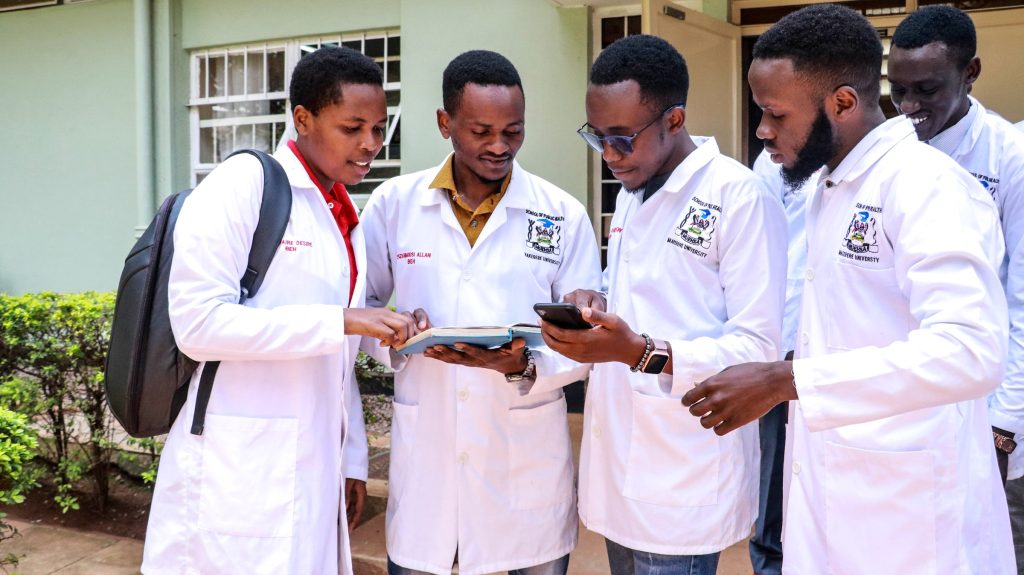
He commuted to school in his first semester, but during a brief holiday before the second semester, he decided to stop commuting and go back to his taxi business in the Old Taxi Park to earn money for accommodation. He was able to get some money and temporarily moved into Nkrumah Hall, one of the halls of residence for male students admitted to Makerere University, named after the great pan Africanist Nkwame Nkrumah of Ghana with a friend Kelvin Langat.
“I wanted to go back to work as a conductor to earn money for accommodation but it was the festive season so things didn’t work out. I decide to sell sugarcanes in Old Taxi Park because most people there, knew me. I used to contribute something and stay with him on the same bed before COVID came in and we had to leave campus,” a teary Ssembuusi recalls.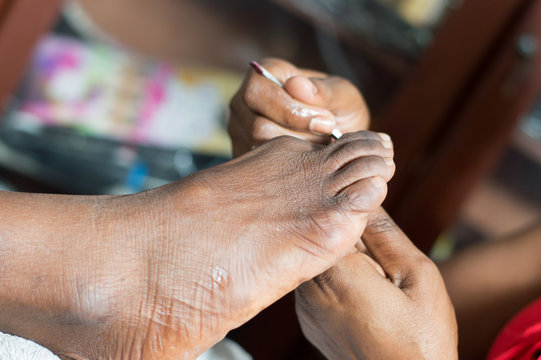
COVID-19 and Ssembuusi’s campus nail business
As the COVID-19 pandemic swept the world, it brought with it a host of challenges for students like Ssembuusi. With lockdowns in place and classes conducted online, Ssembuusi was forced to find ways to make ends meet. Like many students, Ssembuusi found himself struggling to afford the costs of accommodation, and everyday living expenses.
“I went to New Taxi Park (the old one was closed for renovation at this time) and sold water there. It was a tough moment, because I found so many classmates there boarding taxis to go about their business. I wanted to quit, but I also still wanted to survive,” he says.
The Student Loan Scheme is a cost sharing initiative. The Loan strictly covers the academic component, i.e., Tuition fees, Functional fees, Research fees, Aids and Appliances for Persons with Disabilities (PWDs). For Ssembusi’s case, the loan covered Ushs1.8m fees inclusive of functional fees and he is indebted to the loan scheme; “I am thankful for the Student Loan Scheme for enabling me to continue my education, however, they have not yet paid for my last three semesters, preventing me from accessing my transcript until the debt is fully cleared. Despite the delay in payments, they would still allow us to sit for exams with the assurance that they would pay later.”
It was during this time that Ssembuusi stumbled upon an unexpected opportunity. At a friend’s home, he discovered a salon offering manicures and pedicures. Intrigued, he asked the owner to teach him the trade, and soon found himself learning the skills needed to set up his own mobile manicure and pedicure business.
With the support of his classmates, Ssembuusi’s business quickly took off. Working on almost all of his female classmates, Ssembuusi found himself juggling the demands of her coursework and his business. But he was committed to making it work, and with the help of a loan from a friend, he was able to purchase the equipment he needed to keep his business running.
“I have been doing pedicure and manicure, and all my clients have been my colleagues. I was charging 10,000 to 30,000 Ushs for gel nails. People perceive it as a “low-key job”, and I am sure it’s hard for most campusers to do this kind of work especially on their classmates. I know some people come from advantaged families, but for those of us who have been disadvantaged, please don’t look down on any opportunities or jobs that will help you raise some money to sustain you,” he says.
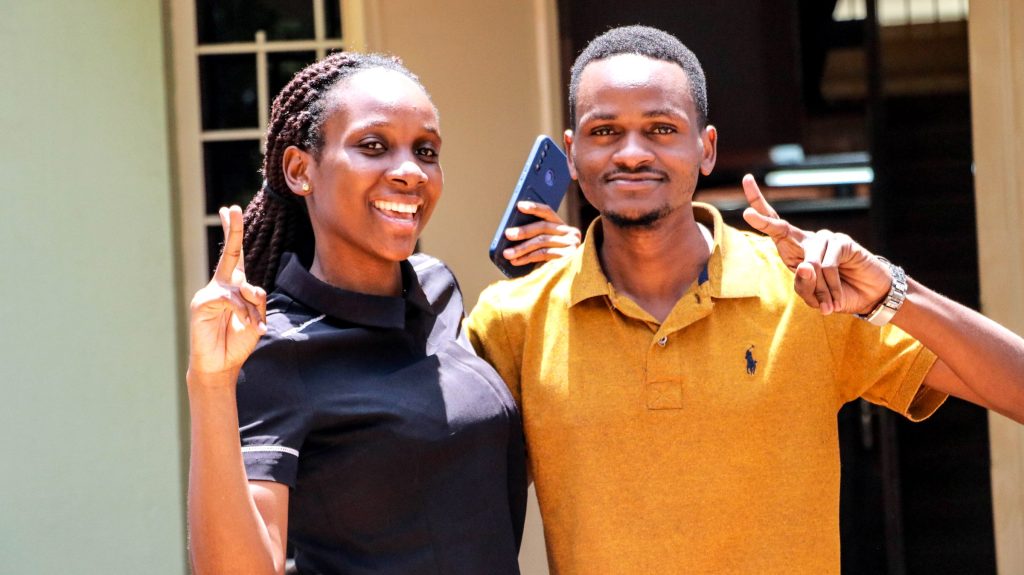
“I think I have worked on almost all my female classmates. The business boomed, I started getting recommendations but it was a challenge on my side to attend lectures and also attend to clients. My course is a full day course, and being a course representative, I had to be around. I managed to schedule my clients in the evenings and over the weekends when I worked all day.
Ssembuusi has throughout his school life struggled with self-doubt and imposter syndrome, but along the way found ways to overcome it through self-improvement and taking advantage of opportunities. He was active in the school community, serving as a class representative and holding leadership positions in Makerere University Environmental Health Students Association (MUEHSA).
He found success in extracurricular activities, such as participating in medical camps and running events. After finishing his course, Ssembuusi sought guidance from his mentors and ultimately landed a volunteer position under the mentorship of Dr. David Musoke, a Senior Lecturer in the Department of Disease Control and Environmental Health at Makerere University School of Public Health (MakSPH). His future goal is to pursue a Masters and eventually a PHD in academia and research. He encourages others to take advantage of opportunities in order to be successful.
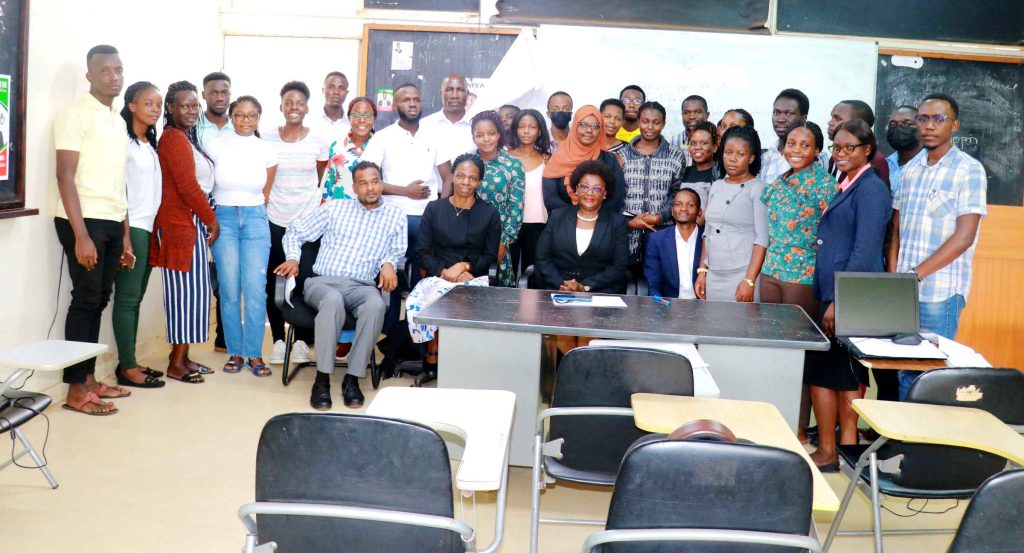
To achieve a first class, one must put in hard work and strive to do their best. “I didn’t set out to achieve a first class, but I now understand its value. A lecturer once told us, ‘Don’t listen to those who say a first class isn’t worth it – if you can earn one, go for it.’ That’s my advice to my peers – aim for the best and don’t be discouraged. I didn’t actively pursue a first class, but my efforts paid off in the form of this distinction,” says Ssembuusi.
He adds; “Mr. Frederick Oporia, who taught me inspection, court etiquettes, and environmental health legislation, is my standout lecturer and role model. Currently the Head of Trauma, Injury, & Disability (TRIAD) unit, he continues to inspire me. Additionally, Dr. David Musoke, who is my mentor, is someone I look up to and strive to emulate in my work.”
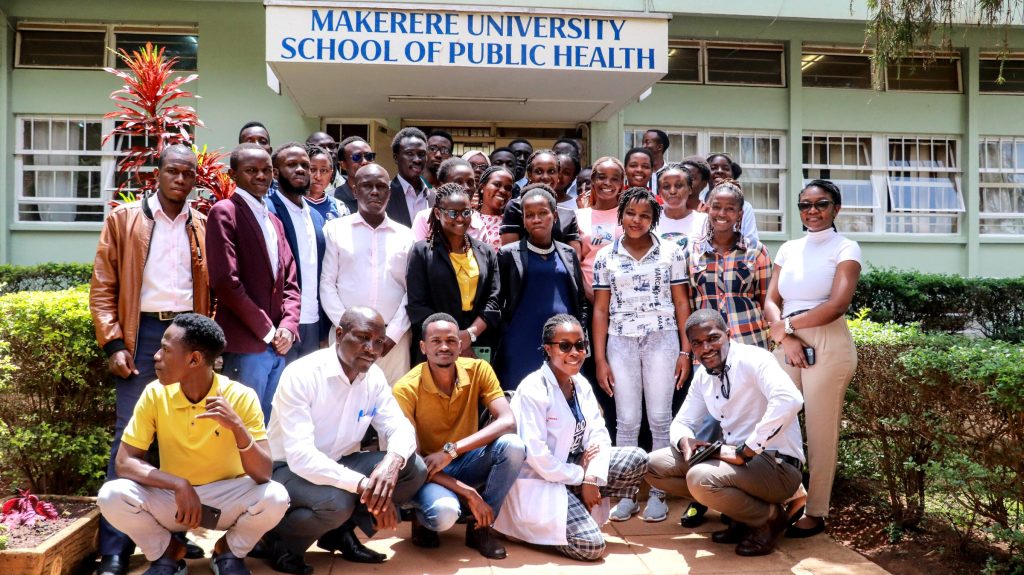
You may like
-
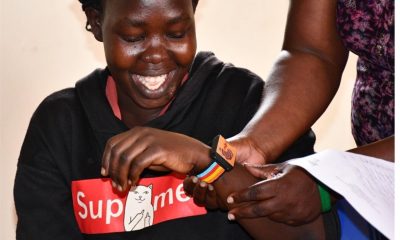

Mak Researchers Partner with Safe Bangle Technologies to Roll out a Real-Time Domestic Violence Reporting Bracelet
-
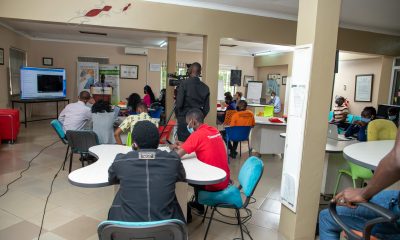

Short Course Announcement: Basic Data Analysis
-
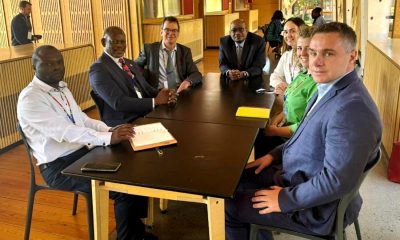

Prof. Barnabas Nawangwe attends WUN/ARUA AGM at the Future Africa Campus, University of Pretoria
-
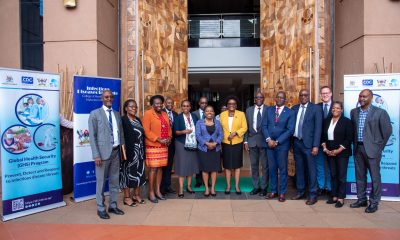

METS Newsletter May 2024
-
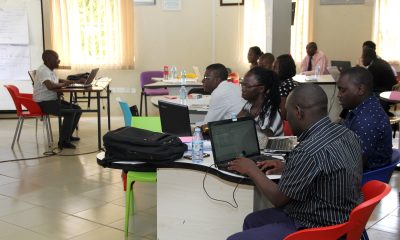

Short Course Announcement: Fundamentals of Teaching and Learning
-
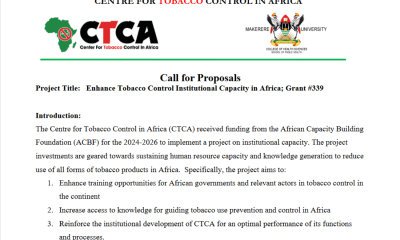

CTCA Call for Proposals: Enhance Tobacco Control Institutional Capacity in Africa
Health
ENABLING Project Social Scientist Positions: (1) Team Lead (3) Research Associates
Published
1 week agoon
July 18, 2024By
Mak Editor
Makerere University College of Health Sciences-MAKCHS- Centre of Excellence in Women’s Health in collaboration with Makerere University-Johns Hopkins University (MU-JHU) Care Limited received funding from Bill and Melinda Gates Foundation; Enabling Platforms for Maternal Immunization: Uganda (ENABLING Project). The Project aims to identify, characterize, and support the delivery platform, policy, and preparedness requirements for introducing new maternal vaccines. The Project seeks to recruit suitable candidates for the following positions;
Social Scientist, Team Lead (01)
Social Scientist Research Associate (03)
Duty Station: Kampala
Engagement: Full Time
All applications must be submitted to the email: enablingproject71@gmail.com before Monday, 29th July 2024 at 23:59hrs EAT
Health
Call for Abstracts: Makerere Bioethics Conference 2024
Published
1 week agoon
July 18, 2024By
Mak Editor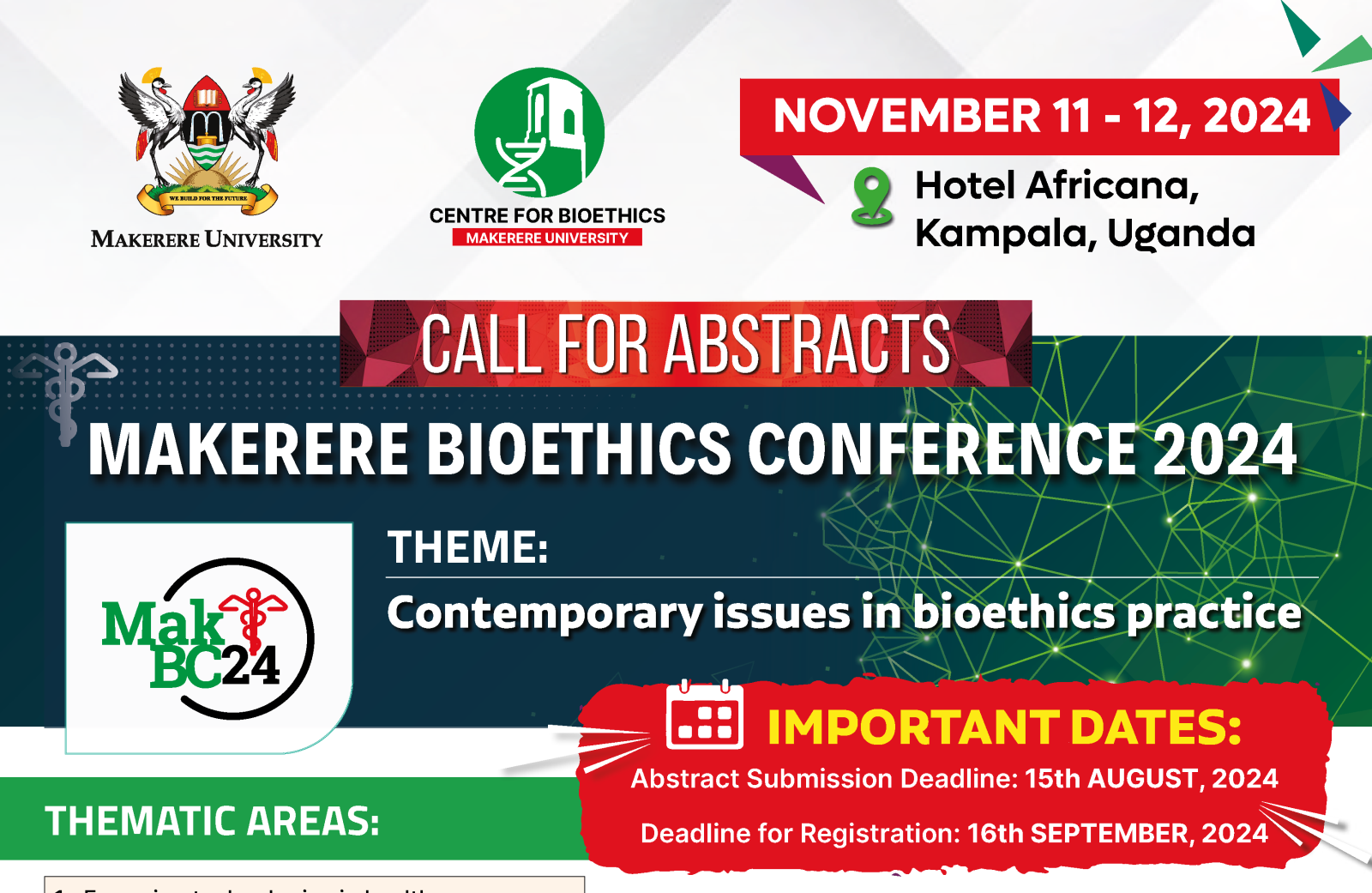
The Centre for Bioethics under Makerere University Biomedical Research Centre (MakBRC) is delighted to announce the MAKERERE BIOETHICS CONFERENCE (MakBC 2024), scheduled to take place on 11th and 12th November 2024 at Hotel Africana, Kampala, Uganda. This year’s theme is ‘Contemporary Issues in Bioethics Practice,‘ and we invite researchers, practitioners, and students to submit their abstracts for presentation.
Thematic Areas:
- Emerging Technologies in Health
- Genetics and Genomics
- Assisted Reproductive Health
- Drug and Vaccination Development
- Nanotechnology
- Robotic Surgery
- Data Science
- Artificial Intelligence and Machine Learning
- Biotechnology
- Big Data
- Digital Health
- Research Ethics
- Research Ethics
- Research Integrity
- Clinical Ethics
- Public Health Ethics
Important Dates:
Abstract Submission Deadline: 15th August 2024
Registration Deadline: 16th September 2024
Submission and Registration:
Abstract Submission: Click here to Submit your Abstract
Online Registration: Click here to Register for the Conference
For more information contact Conference Secretariat:
Department of Anatomy,
Last Floor, School of Biomedical Sciences
Makerere University College of Health Sciences,
P.O Box 7072 Kampala, Uganda.
Email: makbioethicsconference@gmail.com
Website: https://chs.mak.ac.ug/makbc2024
Tel: +256 782 363 996 or +256 772 246 681
Health
Mak Researchers Partner with Safe Bangle Technologies to Roll out a Real-Time Domestic Violence Reporting Bracelet
Published
1 week agoon
July 17, 2024By
Mak Editor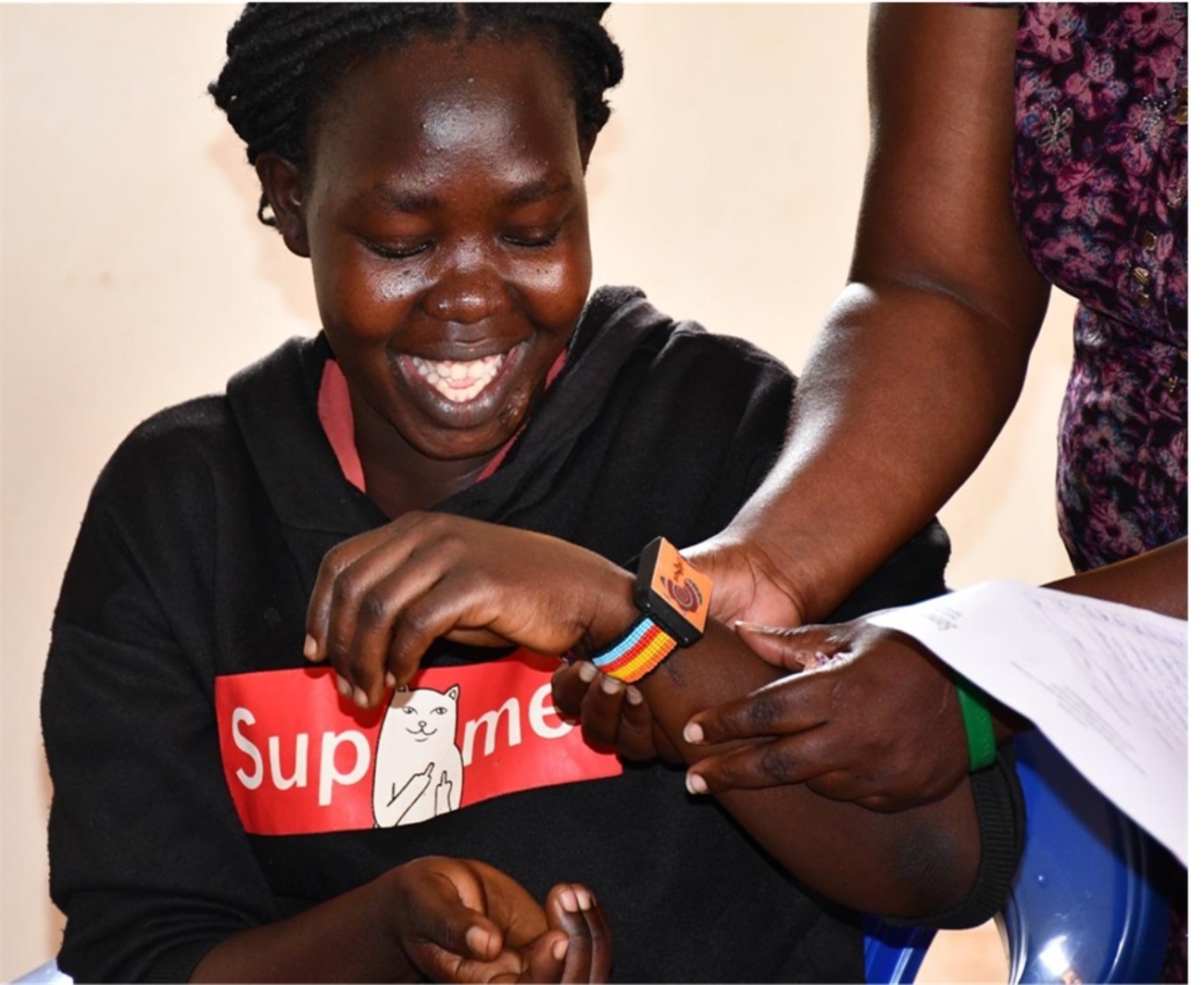
By Joseph Odoi
A Consortium of Researchers from Makerere University School of Public Health/Resilient Africa Network (MakSPH/RAN), Medical College of Wisconsin (MCW), Somero Uganda together with Safe Bangle Technologies have rolled out a real time domestic violence reporting bracelet.
This roll out was made possible with support from the United States Agency for International Development (USAID) under the PARTNERSHIPS FOR ENHANCED ENGAGEMENT IN RESEARCH (PEER) program and the National Academies of Sciences.
Dr. Juliet Kiguli, the Principal Investigator from Makerere University, along with Dr. Roy Mayega, Deputy Chief of Party at RAN, and Dr. Agnes Nyabigambo, the study coordinator, initiated the PEER program to identify entry points for testing SafeBangle Technologies (a social enterprise based at Resilient Africa Network (RAN) with a mission to create a safer and more secure environment for women and children through innovative, affordable, and creative technology solutions to curb GBV in Africa.) wearable safety bracelet in the informal settlements. This decision stemmed from findings of increased intimate partner violence (IPV) and gender-based violence (GBV) in three informal settlements in Kampala, Uganda, following a longitudinal study, geospatial mapping, and interviews. The project, titled ‘The Impact of the COVID-19 Pandemic on Gender-Based Violence among Women and Girls in Informal Settlements in Kampala,’ highlighted the urgent need for affordable and immediate reporting mechanisms for violence.”
‘’While carrying out a study after the Covid-19 Pandemic, we identified gaps when it comes to reporting and response to Gender Based Violence (GBV) among women in informal settlements. Therefore, we used incorporated the SafeBangle intervention to solve the problem of lack of affordable and immediate reporting mechanisms for violence using a bracelet that reports violence in real time’’ explained Dr. Kiguli.
Innovation details
According to Saul Kabali and Messach Luminsa, the innovators behind SafeBangle from SafeBangle Technologies, hosted at the Resilient African Network Lab. ‘’The inspiration behind SafeBangle came from a deeply personal place. ‘’We heard countless stories of women who couldn’t call for help during moments of danger. We were deeply affected by the story of Aisha, a young woman in a rural village who was attacked while walking home alone at night. With no way to call for help, she felt helpless and vulnerable. This incident made us realize the critical need for immediate reporting alert tools, accessible to women like Aisha. We knew technology could play a crucial role and this incident awakened a strong desire in us to create a solution’’
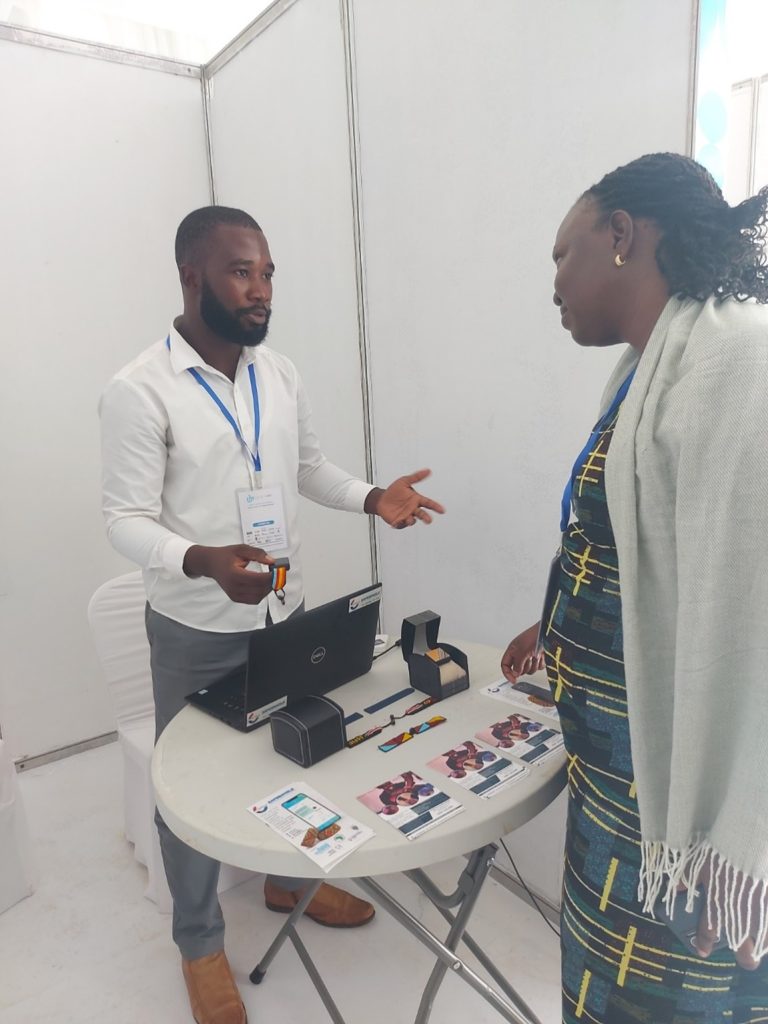
“While developing SafeBangle, we tested with the users in both rural and urban contexts. We piloted the innovation around Kampala with support from Digital Human Righs Lab and Naguru Youth Health Network as well as it in five districts of Karamoja region with support from Save the Children and Response Innovation Lab. Right now it has become handy in Kamapala‘s informal settlements. We envision a future where SafeBangle becomes a standard tool in the fight against GBV, ensuring every woman feels safe and secure as it has the potential to transform how we respond to GBV in Africa” added Kabali.
HOW THE SAFEBANGLE TECHNOLOGY WORKS
The SafeBangle is wearable technology similar to a smartwatch that sends an alarm by SMS to people chosen by a woman herself if she feels threatened.
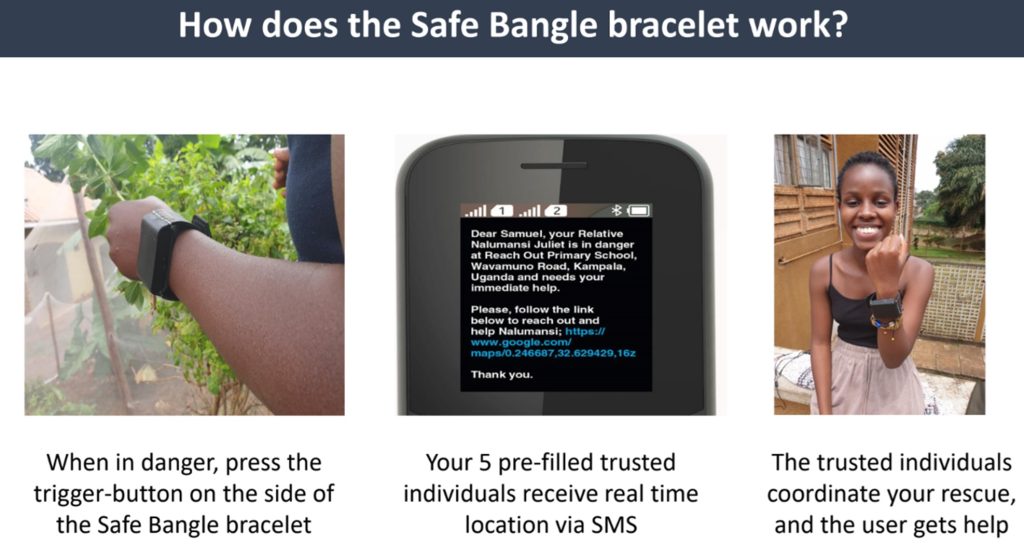
In terms of the acceptability of the SafeBangle innovation as a solution to GBV among at-risk women in informal settlements Of the 72 adolescent girls and women who received the SafeBangle, 22 activated the reporting button, resulting in 19 receiving immediate and appropriate support, including counseling, police intervention, and health services.
All adolescent girls and women who experienced GBV received a phone call from Somero Uganda to discuss the most appropriate intervention, including counseling, police cases being handled by the probation office, referral for health services, and post-exposure prophylaxis. All the GBV survivors received support and are still receiving continuous follow-up.
Researchers conducted a survey among 644 girls and women in Kinawataka (Nakawa Division) and Bwaise (Kawempe Division) to gain insights into awareness and understanding of sexual and gender-based violence among adolescent girls and women in informal settlements. The survey measured socioeconomic factors, mental health symptoms, and exposure to GBV. Focus group interviews were conducted with a separate sample of women over 18 in the settlements to explore responses to GBV.
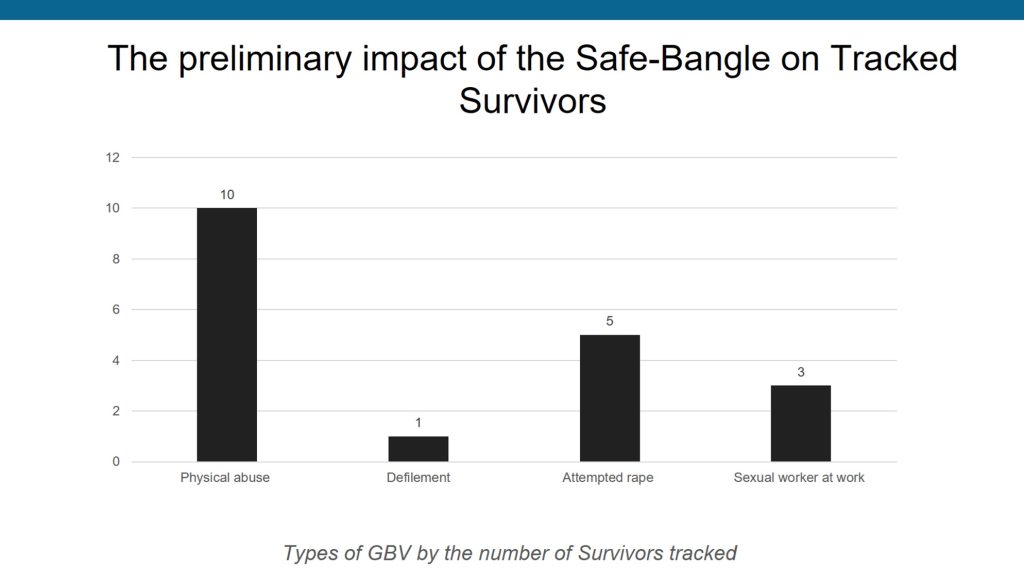
A tabular representation of the key findings and lessons learned from your study on gender-based violence (GBV)
| Key Findings | Lessons learned |
| Prevalence of GBV. – Overall prevalence: 34.1% of women and girls reported experiencing GBV. – Among adolescents (15-19 years): Over 50% reported experiencing GBV. | – The pandemic highlighted the need for accessible and comprehensive support services for GBV survivors. – Schools emerged as crucial safe spaces for girls, emphasizing their well-being during crises. – Economic independence proved crucial, enabling women to leave abusive environments. – Involving men and boys as allies in GBV prevention efforts is essential. |
| Age-related trends | – GBV prevalence tends to decrease with increasing age. |
| Physical and health consequences. | – Women and girls suffered physical violence, injuries, and deaths, primarily from domestic violence and unsafe abortions due to limited healthcare access. – GBV resulted in unintended pregnancies, unsafe abortions, and increased risk of sexually transmitted diseases (STIs) like HIV/AIDS. |
| Social and economic impact. . | – GBV contributed to family breakups, strained marriages due to financial stress. – Economic hardships forced some women and girls into transactional sex, exposing them to further health risks and exploitation. – Pandemic-related job losses and economic constraints increased financial dependence on abusers, trapping women in violent situations. – School closures and increased household responsibilities limited women’s job opportunities and subjected them to sexual harassment. |
| Psychological effects | – Survivors experienced guilt, shame, anxiety, fear, and suicidal thoughts due to ongoing abuse. |
| Long-term effects | – Post-COVID-19, survivors faced disrupted education, early marriages, pregnancies, social stigma, and persistent mental health issues. |
Reproductive Health Consequences: GBV resulted in unintended pregnancies, unsafe abortions, and increased risk of sexually transmitted diseases (STIs) like HIV/AIDS.
Family Breakdown: The rise in GBV led to family breakups as women fled abusive relationships. Marriages were strained due to increased financial stress.
Transactional Sex for Survival: Desperate for basic needs due to job losses and economic hardship, some women and girls resorted to transactional sex, exposing them to further health risks and exploitation.
One study participant stated, “The time of COVID-19 was so terrible for some of us. We in fact got a lot of diseases from it because you would want to get food and didn’t have money. That way you would be forced to get a man who would use you and pay.” – (FGD_Girls_19–24years_Kinawataka).
Economic Effects: COVID-19 restrictions caused job losses and limited economic opportunities, particularly for women in the informal sector. This increased financial dependence on abusers and trapped women in violent situations.
Limited Access to Employment: School closures and increased household chores limited women’s ability to seek employment, perpetuating gender inequality in the workforce. Some faced sexual harassment from potential employers.
Psychological Effects: Survivors of GBV experienced guilt, shame, anxiety, fear, and even suicidal thoughts due to the constant threat and unpredictability of abuse.
Post-COVID Effects: GBV survivors faced long-term consequences, including disrupted education, early marriage, early pregnancy, social stigma, and persistent mental health issues.
Lessons learned
The pandemic highlighted the need for accessible and comprehensive support services for survivors of GBV, the significance of schools as safe spaces for girls, and the need to prioritize their well-being during crises. Economic empowerment emerged as a significant protective factor for women and girls. Those with greater economic independence were better equipped to leave abusive environments and secure their safety and well-being, while dependent ones suffered abuses. Engaging men and boys as allies in the fight against GBV and involving them in prevention efforts can help promote positive behavior change and foster more equitable relationships.
Recommendations
To address GBV against women and girls, the researchers recommend the following moving forward;
- There is need to integrate technology-driven solutions like SafeBangle into national GBV prevention and response strategies. SafeBangle can be a valuable tool for policymakers as cases of violence that would have gone unreported will be brought to light and the would-be victims will be able to get immediate help from trusted relatives and friends.
- Provide economic opportunities and vocational training for women and girls to enhance their financial independence and reduce vulnerability to violence. There is therefore a need to introduce education and training programs that empower women and girls, by providing them with skills, resources, and opportunities to start their own ventures and to participate fully in community affairs.
- Strengthen and enforce existing laws and policies related to GBV, including laws against domestic violence, child marriage, and sexual assault without discrimination be it for law enforcers, leaders, and employers where such cases were suffocated. Ensure that perpetrators are held accountable through swift and fair legal processes that have no room for corruption.
- Establish and promote effective, accessible, and confidential reporting mechanisms for GBV incidents that provide confidence and can be trusted by survivors to enhance reporting of such incidences of GBV. Community Engagement and Involvement: Involve community leaders, religious leaders, and elders in discussions about GBV to promote gender equality, change social norms, and reinforce the message that violence against women and girls is unacceptable.
- Launch extensive public awareness campaigns to challenge harmful gender norms, report cases of GBV, raise awareness about the consequences of GBV, and promote positive behaviors and attitudes towards women and girls.
- Implement comprehensive sexuality education in schools and communities, educating young people about healthy relationships, consent, and reproductive rights to be able to make informed decisions about their own lives and well-being.
- Engage men and boys as allies in the fight against GBV, encouraging them to challenge harmful masculinity norms and behaviors. This will help minimize GBV because mostly they are the perpetrators. Strengthening Support for Survivors: Provide ongoing support and follow-up services for survivors of GBV mostly counselling services to aid their recovery and facilitate their reintegration into society.
- Provide ongoing support and follow-up services for survivors of GBV, mostly counseling services to aid their recovery and facilitate their reintegration into society.
- Provide avenues to seek free or subsidized services by survivors of GBV medical services and legal processes by survivors of GBV to enhance reporting of GBV cases, access to medical care, counseling, legal support, and other essential services.
- Encourage and support more research and innovations like SafeBangle to curb incidents of GBV.
- A comprehensive and inclusive approach is required. The efforts should involve government institutions, civil society organizations, community leaders, and individuals working together to address the root causes and provide support to survivors.
- Involve media in GBV prevention activities and for enhancing campaigns against GBV mostly on radio and TV.
MORE ABOUT THE STUDY
The core project team, included researchers at Makerere University School of Public Health (MakSPH), Medical College of Wisconsin (MCW) led by Prof. Julia Dickson-Gomez, SafeBangle Technologies, and Somero Uganda, a community-focused NGO, began the project by designing their research protocol and taking a CITI Program course on human subjects social/behavioral research. Team members also met with the Ministry of Gender, Labour, and Social Development (MGLSG) in support of the gender-based violence policy process, Ministry of Health and local government. They also established relationships with the Kampala Capital City Authority (KCCA) and Nakawa and Kawempe probation offices to support legal processes for the GBV survivors. SafeBangle Team also received an award from Defenders Protection Initiative.
Trending
-
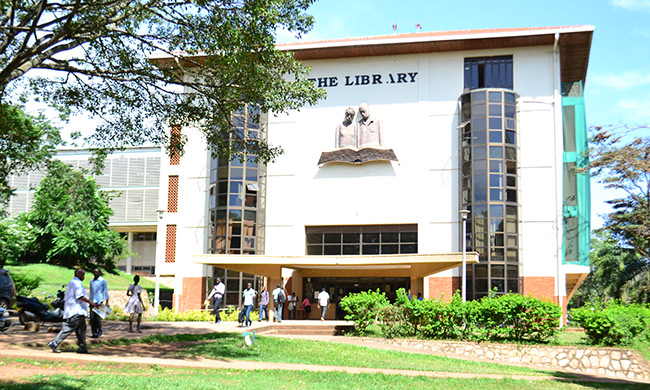
 General1 week ago
General1 week agoDiploma/Degree Holders Admission Lists 2024/25
-
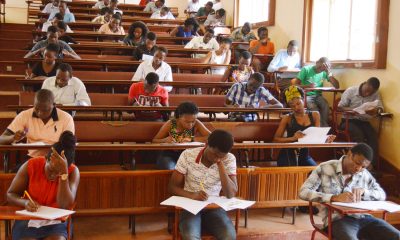
 General1 week ago
General1 week agoAdvert: Mature Age Entry Scheme – Private Sponsorship 2024/2025
-
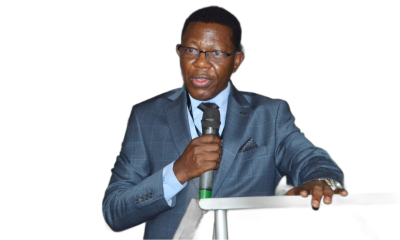
 General5 days ago
General5 days agoProf. Buyinza Mukadasi Appointed Acting DVC Academic Affairs
-
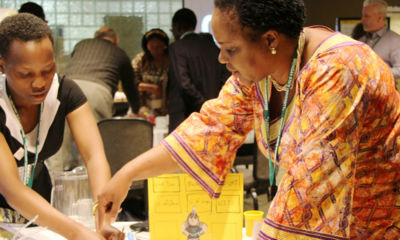
 General1 week ago
General1 week agoAfrican Futures Research Leadership Program: Cohort 5 – Call for Scholars
-
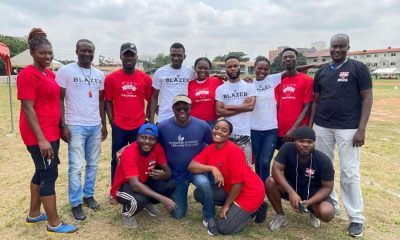
 General1 week ago
General1 week agoNow Open: CADFP Project Requests
